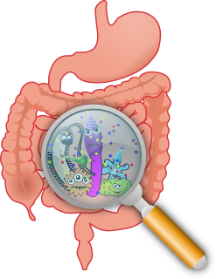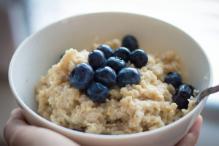Probiotic and prebiotic supplements are not currently recommended for the general public. Additionally, only in specific doses have probiotics been shown to be useful for specific medical conditions. There is some evidence for certain cases where use of probiotics might be helpful to help restore the natural gut bug balance of your system if it has been disturbed and disrupted by an illness or a treatment. Examples of this includes use of probiotics to reduce the risk of traveller’s diarrhoea and antibiotic-associated diarrhoea, to ease symptoms of constipation, for prevention of Clostridium difficile infection in older adults taking antibiotics in hospital, and for management of certain cases of irritable bowel syndrome (particularly for the symptoms of IBS) (BDA, 2018).This is a very new area of research and much more is needed. If you do have questions about supplementation, please speak with your doctor and a dietitian or nutritionist in your community to get advice, and referral on for specialist advice if required.
Gut Health
News
- Cervical Cancer Awareness Week 2024
- Alcohol Awareness Week 2023
- Silvercloud
- The Resilience Tree
- Sleep Hygiene
- Gut Health
- The Removal of Sugar Sweetened Beverages in UCD
- Healthy Eating Blog Series
- Sustainable Eating
- Healthy Eating for Commuting
- Stress
- Digital Detoxing
- Stress Management
- Award Winning Physical Acitvity @ UCD
- Heartfulness Meditation
- Fitness Options@UCD
- Wellness Wednesday
- Workplace Wellbeing
- Alcohol Week
- UCD Exercise Programmes Available for Staff
- HEA Higher Education Healthy Campus Charter
Gut Health
 The term ‘gut microbiome’ refers to the unique population of predominantly bacteria that inhabit in our gastrointestinal tract (where our food is digested and absorbed). This population includes more than 1000 different species and literally trillions of micro-organisms! Research shows links between the gut microbiome and many aspects of our health including the immune system, cardio-metabolic health, and digestive symptoms and conditions (such as irritable bowel syndrome, inflammatory bowel disease and digestive cancers) (Valdes et al., 2018). There are many different species of gut bacteria found at each stage of the digestive tract - all the way from the mouth to the large bowel. Now let’s look at three ways we can eat to give our gut bugs the love they deserve.
The term ‘gut microbiome’ refers to the unique population of predominantly bacteria that inhabit in our gastrointestinal tract (where our food is digested and absorbed). This population includes more than 1000 different species and literally trillions of micro-organisms! Research shows links between the gut microbiome and many aspects of our health including the immune system, cardio-metabolic health, and digestive symptoms and conditions (such as irritable bowel syndrome, inflammatory bowel disease and digestive cancers) (Valdes et al., 2018). There are many different species of gut bacteria found at each stage of the digestive tract - all the way from the mouth to the large bowel. Now let’s look at three ways we can eat to give our gut bugs the love they deserve.
1. Get Friendly with Fibre
 Irish dietary guidelines state we should consume between 24-35g of fibre per day - but up to 80% of Irish adults are not consuming enough dietary fibre (INDI, 2016). Fibre keeps our bowel habits regular, reducing constipation, and helping keep us fuller for longer. Studies show an optimal fibre intake has been associated with lower risks of cardiovascular disease, high blood pressure, type 2 diabetes, and cancers including colorectal and breast (Reynolds et al., 2019). Simple ways to boost your fibre intake include consuming 5-7 portions of fruits and vegetables per day, increasing your intake of wholegrains, and adding plant protein foods sources high in fibre into your diet, such as beans, chickpeas and lentils. Boosting our fibre intake is the simplest way to start improving our gut health. Why not start this week and try making a homemade hummus for a plant-based snack with raw vegetable sticks, or try this Sweet and Smokey Bean Chili for dinner!
Irish dietary guidelines state we should consume between 24-35g of fibre per day - but up to 80% of Irish adults are not consuming enough dietary fibre (INDI, 2016). Fibre keeps our bowel habits regular, reducing constipation, and helping keep us fuller for longer. Studies show an optimal fibre intake has been associated with lower risks of cardiovascular disease, high blood pressure, type 2 diabetes, and cancers including colorectal and breast (Reynolds et al., 2019). Simple ways to boost your fibre intake include consuming 5-7 portions of fruits and vegetables per day, increasing your intake of wholegrains, and adding plant protein foods sources high in fibre into your diet, such as beans, chickpeas and lentils. Boosting our fibre intake is the simplest way to start improving our gut health. Why not start this week and try making a homemade hummus for a plant-based snack with raw vegetable sticks, or try this Sweet and Smokey Bean Chili for dinner!
2. Prebiotics and Probiotics
 Probiotics are live beneficial bacteria and yeast, while prebiotics are non-digestible food substances that are used BY your gut bacteria (BDA, 2018). Think of probiotics are being good gut bugs, while prebiotics are like fertiliser or food for these good guys. Both exist in food and supplement form. Examples of probiotic food sources include ‘fermented foods’ such as yoghurt, kefir, sauerkraut, miso, kombucha, and tempeh. Prebiotic food sources include bananas, leeks, onions, chicory, asparagus and artichoke. Oats contain the prebiotic fibre beta-glucan – more reasons to try Overnight Oats for breakfast! Importantly, not ALL fibres are prebiotics, because prebiotics are the fibres digested by our GOOD gut bacteria, while other non-prebiotic fibres can be digested by the potentially harmful bacteria that live in our gut. It is thought that regular consumption of prebiotics provides our good gut bugs with a steady source of food to chow down on, allowing them to survive and increase in population numbers (i.e. in greater numbers than the bad bugs). Why not try getting some natural prebiotic sources into your diet by making these Banana Oat Cookies, or adding probiotic kefir or yoghurt to your morning oats!
Probiotics are live beneficial bacteria and yeast, while prebiotics are non-digestible food substances that are used BY your gut bacteria (BDA, 2018). Think of probiotics are being good gut bugs, while prebiotics are like fertiliser or food for these good guys. Both exist in food and supplement form. Examples of probiotic food sources include ‘fermented foods’ such as yoghurt, kefir, sauerkraut, miso, kombucha, and tempeh. Prebiotic food sources include bananas, leeks, onions, chicory, asparagus and artichoke. Oats contain the prebiotic fibre beta-glucan – more reasons to try Overnight Oats for breakfast! Importantly, not ALL fibres are prebiotics, because prebiotics are the fibres digested by our GOOD gut bacteria, while other non-prebiotic fibres can be digested by the potentially harmful bacteria that live in our gut. It is thought that regular consumption of prebiotics provides our good gut bugs with a steady source of food to chow down on, allowing them to survive and increase in population numbers (i.e. in greater numbers than the bad bugs). Why not try getting some natural prebiotic sources into your diet by making these Banana Oat Cookies, or adding probiotic kefir or yoghurt to your morning oats!
3. Dont forget the Healthy Lifestyle Basics!
Maintaining an overall healthy lifestyle can really help our gut bugs thrive too. Some examples of how we can do this include:
- Making mealtimes mindful, ensuring we chew our food well and eat slowly
- Staying hydrated – aiming for a minimum of 2 litres of water per day
- Moderating caffeine and alcohol intake, both of which can be irritating to the digestive tract
- Ensuring we get regular physical activity, which helps keep your bowel habits regular too
- Prioritising getting a minimum of 7 (ideally 8) hours of sleep per night
- Optimising stress management. Research shows the gut and the brain talk to each other via the nervous system – anyone who has experience butterflies when nervous will understand this! You’ll find some simple stress management tips in a recent article here
By Ciara Kelly (UCD Masters of Public Health)
British Dietetic Association (2018). ‘Food Factsheet: Probiotics.’ BDA. Available at: (opens in a new window)https://www.bda.uk.com/foodfacts/probiotics.pdf
Irish Nutrition and Dietetic Institute (2016). ‘Fabulous Fibre.’ INDI. Available at: (opens in a new window)https://www.indi.ie/images/fact_sheets/Fabulous_fibre_fact_sheet_2.pdf
Reynolds, A. et al. (2019) ‘Carbohydrate quality and human health: a series of systematic reviews and meta-analyses’, The Lancet, 393 (10170), pp. 434-445.
Valdes, A. et al. (2018) ‘Role of the gut microbiota in nutrition and health’, British Medical Journal, 361, Supp1.